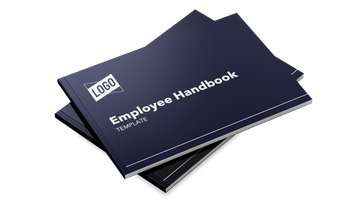How HR Risk Mitigation from Outsourcing Provider Supports SMEs

Table of contents
- 1.Core Services in HR Risk Mitigation
- 2.Payroll services
- 3.Policy support and implementation
- 4.Review support
- 5.Workplace investigations and conflict resolution
- 6.Employee relations support
- 7.Training and development programs
- 8.Documentation and record-keeping systems
- 9.Benefits of HR Risk Mitigation
- 10.Cost effectiveness and financial impact
- 11.Simplify compliance
- 12.Enhancing operational efficiency and business continuity
- 13.Data security and privacy
- 14.Allocation of duties
- 15.Finding the Best Risk Mitigation Strategy
When you have employees, risk is inevitable. You cannot avoid it completely, but you can mitigate your risks wisely. You can be proactive and put measures into place that can help problems from arising. One increasingly popular solution is to work with an outsourcing provider that provides HR risk mitigation. These providers can support your company by supplying expert best practice guidance that helps mitigate risks involved in your human resources administrative functions.
HR risk occurs most commonly in these categories:
- Compliance. Businesses are subject to a complex web of employment-related laws, rules and regulations. These can exist on the federal, state and local levels. Violate any of them, and you could be hit with fines and penalties and/or be the target of lawsuits brought by current or former employees.
- Payroll. Your business is required to follow pay-related laws, such as overtime, time off and employee benefits deduction. You must correctly classify people as employees or independent contractors, and designate employees as exempt or non-exempt. You also are responsible for collecting, filing and remitting payroll taxes.
- Employee matters. Some employee matters, such as harassment and discrimination claims, can have legal repercussions. For others, such as a company culture that does not promote employee satisfaction and motivation, the risks for the employer could include an increased turnover rate and lower productivity.
- Workplace safety. Businesses must follow the applicable federal OSHA, state and industry-specific safety regulations. Workplaces where safety falls below the standards can face fines. Employee satisfaction and retention rates also suffer in companies that are perceived as not caring enough about workplace safety.
When small and medium-sized businesses try to mitigate these risks in-house, their efforts may fall short. It’s difficult for non-experts to keep up with employment-related and workplace safety laws and regulations, as well as the frequent changes made to them. Companies can also get into trouble by making mistakes in processing paychecks and maintaining payroll records. Many SMBs find that it’s better to get help from an outsourcing provider whose experts can provide best practices guidance and tools to help. These third-party vendors know how to mitigate your risks.
A typical risk mitigation from an outsourcing firm may:
- Use powerful HR software to quickly and effectively help you process your payroll, taking into account applicable requirements.
- Provide best practice guidance for compliance support and provide tools to help remind you of important deadlines.
- Help you provide benefits and workforce administration tools that can make your employees feel valued and part of the team.
- Conduct risk assessment reviews of your procedures to identify areas where you may be vulnerable, so that you can take necessary action.
Core Services in HR Risk Mitigation
Businesses can get services to help with HR risk mitigation in different ways.
They could work with a professional employer organization (PEO). PEOs provide a comprehensive HR outsourcing solution and are the employer of record for payroll tax purposes.
Another possibility is an administrative services organization (ASO). An ASO provides a narrower range of administrative support and services and is not a co-employer.
Businesses also can engage the services of a specialty provider to help take care of one need or a small number of HR functions.
Let's look at some of the core services that helps with HR risk mitigation.
Payroll services
By outsourcing your payroll processing services, you can receive support with:
- Pay calculations
- Employment tax filings
- Benefits deductions
- Payroll recordkeeping
Policy support and implementation
Outsourcing providers can help you develop workplace policies that mitigate the chances of employees engaging in harassment, discrimination and other concerns that can put your company at risk of being sued. They can help you reinforce the policies in your company’s culture by helping employees access appropriate training easily.
Review support
Some outsourcing firms offer policy and practice reviews that can help pinpoint areas where you are may be at risk. They can help you track important deadlines and provide best practice guidance on compliance concerns you should be aware of. This can be especially useful if you have employees in multiple states or localities.
Workplace investigations and conflict resolution
Workplace conflicts may spiral into litigation if they are not resolved early on. An outsourcing firm can help support workplace concerns. They can provide best practices to help guide you to a solution.
Employee relations support
An outsourcing firm can enhance employee satisfaction by providing user-friendly self-service employee portals to the HR system. This can be applied to a wide range of functions, including performance reports, onboarding new employees, and time and expenses tracking. These tools, and the convenient access to them, help employees to feel that they are valued members of the team.
Training and development programs
Outsourcing services can give employees easy access to the most relevant training and development programs. Their tools can help employees set goals and keep track of their progress.
Documentation and record-keeping systems
Outsourcing providers store records securely in the cloud, helping reduce the risk associated with paper-based systems or outdated in-house software systems. They can help protect the privacy of sensitive employee data with robust security technology, while providing user-friendly ways for employees to access their own information and the documents they need. The providers can also help ensure that required record-keeping requirements are met.
Benefits of HR Risk Mitigation
HR risk mitigation could provide a two-fold benefit: mitigating your HR risks more effectively than you could do in-house, and doing that in a cost-efficient way. PEOs are an excellent way to achieve this goal, and many also provide risk mitigation. Bundling all of these services together offers efficiency and potential peace of mind as part of a PEO’s ROI.
Cost effectiveness and financial impact
Using an HR outsourcing provider could cost less than maintaining a full-service HR department of your own in-house. For example, you would no longer need to manage multiple vendors for the recruiting tool, training, payroll and benefits. Additionally, aside from the bundle of services into one comprehensive solution, you do not have to worry about maintaining, troubleshooting and updating the HR technology software.
Simplify compliance
An outsourcing firm’s HR expertise can help you mitigate the potential costs of penalties, fines and employee lawsuits for non-compliance or employment practices. These can have a huge negative impact on both your company’s finances and its reputation.
Enhancing operational efficiency and business continuity
By helping you develop and implement effective procedures, an outsourcing firm can enhance your company’s operational efficiency while mitigating potential HR risks. These procedures can also provide best practice guidance as your company navigates challenges such as natural disasters, globalization and unexpected changes in your industry or national policy.
Data security and privacy
Look for an outsourcing provider that has robust systems to maintain the security of your sensitive data and that is in compliance with applicable data privacy laws.
Allocation of duties
PEOs go beyond HR risk mitigation. When you engage with a PEO, you and the client are in a co-employment relationship. The client service agreement outlines the roles and duties of the parties, helping to clarify the relationship.
Finding the Best Risk Mitigation Strategy
How do you start strategic planning for risk mitigation? You need to proactively evaluate and head off the possibility of employee claims, as well as government penalties and fines. TriNet provides a comprehensive solution that includes:
- Payroll compliance support
- Employment practices litigation insurance (EPLI)
- Help with employment-related claims prevention
- Employment-related claims mitigation
- Benefits compliance for PEO-sponsored plans
- Workers’ compensation and workplace safety resources
TriNet can support the complexities of payroll processing and record-keeping. This can arise from innocent clerical mistakes or lack of knowledge of the intricacies of and recent changes in wage and hour regulations.
An employment-related claim can cost six figures, even if it’s unfounded. TriNet’s legal team will coordinate work with outside counsel and the insurance carrier to help manage your claim as a PEO customer. According to one survey, the average reported employment practices liability loss was about $103,000. In comparison, cases managed by TriNet’s legal team in conjunction with our clients and outside counsel resulted in an average loss of about $40,000 for our clients.*
Contact TriNet to find out more about how we can help your business.

TriNet Team
Table of contents
- 1.Core Services in HR Risk Mitigation
- 2.Payroll services
- 3.Policy support and implementation
- 4.Review support
- 5.Workplace investigations and conflict resolution
- 6.Employee relations support
- 7.Training and development programs
- 8.Documentation and record-keeping systems
- 9.Benefits of HR Risk Mitigation
- 10.Cost effectiveness and financial impact
- 11.Simplify compliance
- 12.Enhancing operational efficiency and business continuity
- 13.Data security and privacy
- 14.Allocation of duties
- 15.Finding the Best Risk Mitigation Strategy






